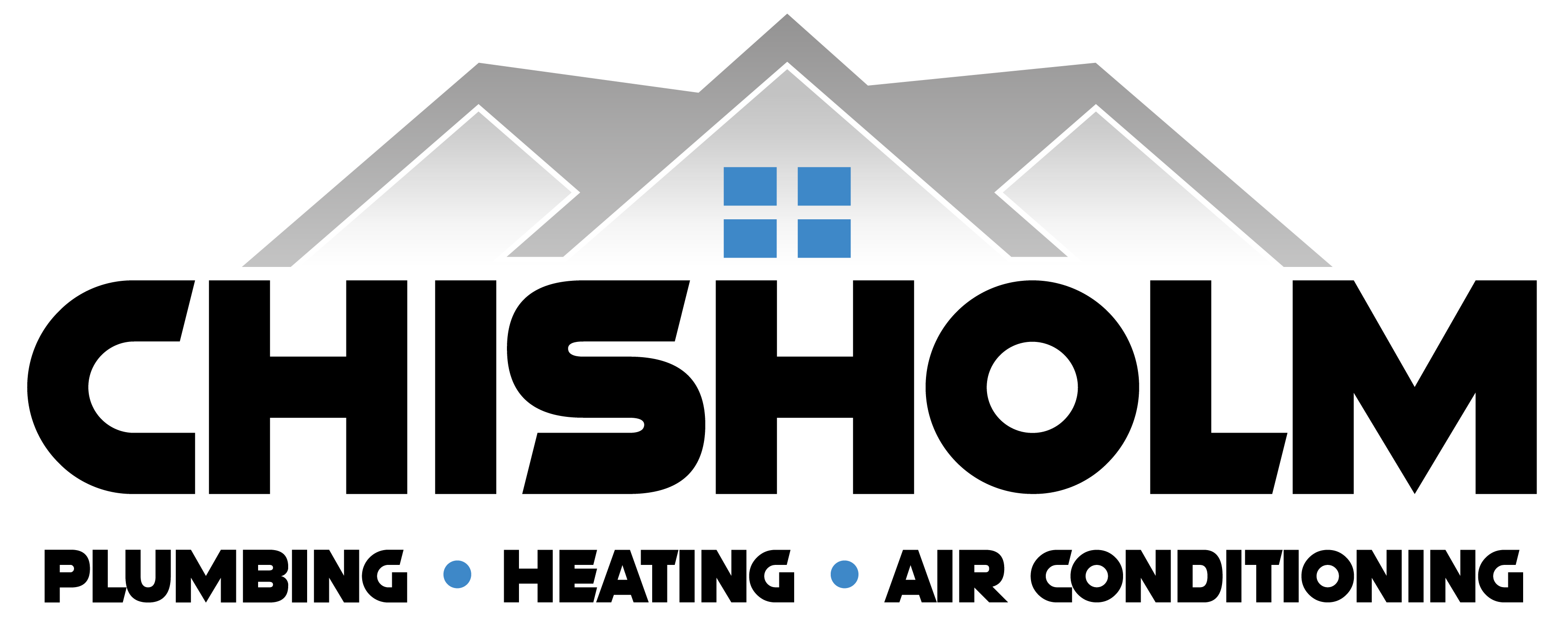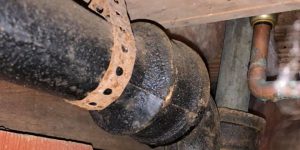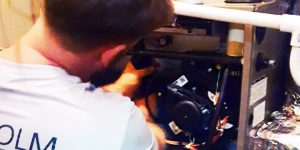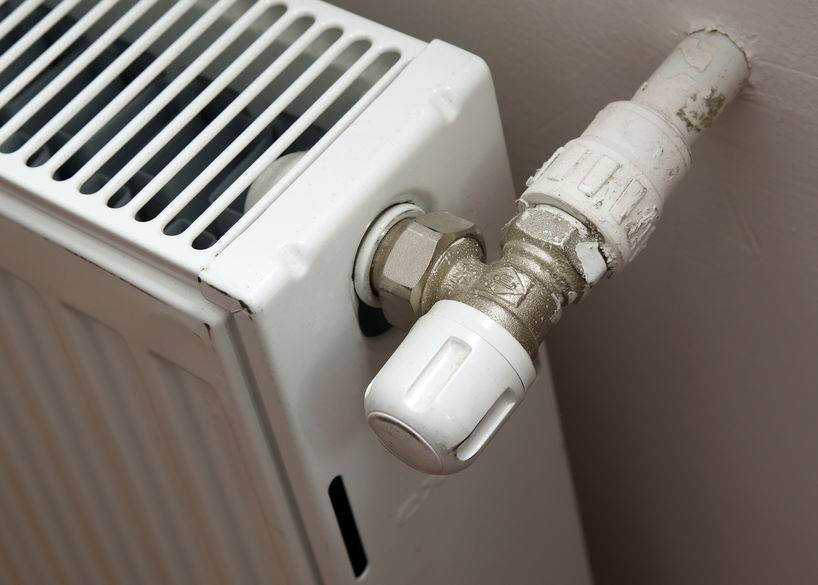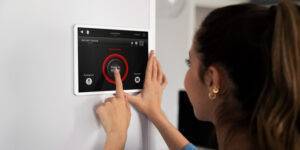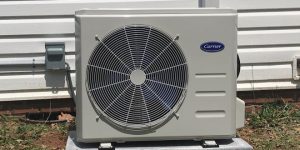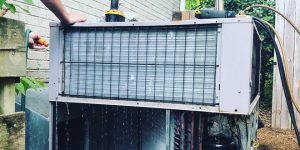
As temperatures drop in Greer, it’s essential to ensure your heating system is ready to keep your home warm and comfortable. A winter tune-up can make a big difference in your system’s performance, efficiency, and safety. But how do you know if your heating system needs one?
In this blog, we’ll highlight the key signs that indicate your heating system could benefit from a professional tune-up. Whether it’s heating repair, maintenance, or a full system replacement, Chisholm Plumbing Heating & Air Conditioning has you covered.
Inconsistent Heating or Cold Spots
If you notice some rooms in your home are significantly warmer or colder than others, it could be a sign that your heating system needs a tune-up. Inconsistent heating is often caused by issues such as blocked vents, malfunctioning thermostats, or imbalanced airflow in your ductwork.
Common Causes of Uneven Heating:
- Blocked or Closed Vents: Check to ensure that all vents are open and not obstructed by furniture or curtains.
- Thermostat Issues: A malfunctioning thermostat may not be communicating properly with your heating system, leading to uneven heating.
- Ductwork Problems: Leaks or blockages in your ducts can cause heated air to escape, resulting in uneven temperatures.
A professional tune-up can identify and fix these issues, ensuring consistent warmth throughout your home. If you’re experiencing uneven heating, it may be time to schedule heating maintenance with Chisholm Plumbing Heating & Air Conditioning.
Unusual Noises from the System
Strange noises coming from your heating system are often a sign that something isn’t working correctly. While a well-functioning system should operate quietly, noises like banging, rattling, or whistling can indicate underlying issues that need to be addressed.
Common Noises and Their Causes:
- Banging or Popping: This could mean there is a build-up of dirt on the burners or that the ductwork is expanding and contracting excessively.
- Rattling: Loose parts or debris in the system can cause rattling noises. It’s important to address these issues to prevent further damage.
- Whistling: This sound usually indicates restricted airflow, often due to a clogged filter or a problem with the ductwork.
Ignoring these noises can lead to more serious and costly repairs. If your heating system is making unusual sounds, it’s time to call in a professional. Schedule a heating repair service with Chisholm Plumbing Heating & Air Conditioning to get your system back on track.

Increased Energy Bills
If you’ve noticed a spike in your energy bills without a change in your usage, it could be a sign that your heating system is not running efficiently. As your system ages, it can lose its efficiency, causing it to work harder and use more energy to maintain a comfortable temperature in your home.
Possible Causes of Increased Energy Bills:
- Dirty Filters: Clogged filters force your system to work harder to push air through, increasing energy consumption.
- Malfunctioning Components: Issues such as a failing blower motor or faulty thermostat can cause your system to run longer than necessary.
- System Age: Older systems naturally become less efficient over time, even with regular maintenance.
A professional tune-up can help identify and fix these issues, restoring your system’s efficiency and reducing your energy costs. If you’ve noticed a rise in your energy bills, it might be time for a heating maintenance check-up. Contact Chisholm Plumbing Heating & Air Conditioning today to schedule your service.
Frequent On-Off Cycling
If your heating system is constantly turning on and off, a problem known as short cycling, it’s a clear sign that your system needs attention. Short cycling not only affects your home’s comfort but also puts extra stress on your heating equipment, leading to higher energy bills and potential damage over time.
Common Causes of Short Cycling:
- Dirty Air Filters: Clogged filters can restrict airflow, causing the system to overheat and shut off prematurely.
- Thermostat Issues: A faulty thermostat may be inaccurately reading the temperature, causing the system to turn on and off too frequently.
- Oversized Furnace: If your furnace is too large for your home, it may heat the space too quickly, leading to short cycles.
A professional tune-up can help diagnose and resolve the underlying issues causing short cycling. If you’re experiencing this problem, it’s best to schedule a heating maintenance appointment to ensure your system is operating efficiently and reliably.
Poor Air Quality or Dust Build-Up
If you’ve noticed more dust around your home or a decline in indoor air quality, your heating system might be to blame. A poorly maintained system can circulate dust, allergens, and other pollutants, affecting the health and comfort of your home.
Signs Your Heating System Is Affecting Air Quality:
- Increased Dust: If you’re seeing more dust around your home than usual, it could be due to a dirty air filter or ductwork.
- Musty Odors: Unpleasant smells when your heating system is running could indicate mold or mildew in the ductwork or furnace.
- Frequent Allergies: If you or your family members experience more allergy symptoms during the winter, your system may be circulating allergens.
During a winter tune-up, a professional will clean or replace filters, inspect ductwork, and ensure your system is running cleanly and efficiently. For improved air quality and a healthier home, schedule heating maintenance with Chisholm Plumbing Heating & Air Conditioning. If you have concerns about your indoor air, don’t hesitate to contact us for assistance.

Conclusion
Recognizing the signs that your heating system needs a winter tune-up can save you from unexpected breakdowns and costly repairs. Whether it’s inconsistent heating, unusual noises, rising energy bills, frequent on-off cycling, or poor air quality, addressing these issues early ensures your system runs efficiently and reliably all season long.
Don’t wait for small problems to become big ones. Schedule your winter tune-up with Chisholm Plumbing Heating & Air Conditioning today. Our team offers comprehensive heating maintenance services to keep your home comfortable and safe. Whether you need heating repair, furnace replacement, or more information about our maintenance plans, we’re here to help.
For more details or to book your service, contact us or check our service areas to see if we’re in your neighborhood. Stay warm this winter, Greer!
